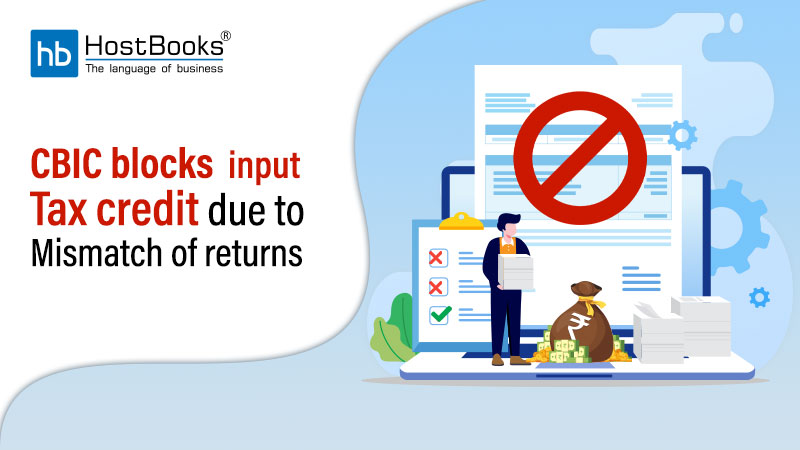CBIC blocks input tax credit due to mismatch of returns

Source: Times of India
The Central Board of Indirect Taxes and Customs (CBIC) has blocked tax credits of about ₹40,000 Crore due to the mismatch of returns, uncovering more than 2,000 entities, not including the cases where the returns were not filed. CBIC Chairman John Joseph said at an event on Monday that the indirect tax wing of the revenue department blocked the credits within four hours.
To prevent the cascading effect of taxes, entities are entitled to credits on tax paid on inputs in the production chain. However, the rising discrepancies in returns and instances of a large number of tax evasions have prompted the government to take a hard stance. The said companies have come under the Income Tax Department scanner due to the inaccurate reporting of GST returns. Their tax credits (GSTR 2A and GSTR 3B) were blocked on January 24.
Mismatch found between GSTR-1 and GSTR-3B returns
The department had collected data which led to a finding that in the initial filing of GSTR-1 for the month and the final GSTR-3B returns, there is a mismatch of over 20%. As the government started using various red flags to identify such companies, the bar got lowered to a difference of 10%. The revenue department also developed a standard operating procedure (SOP) which instructed to share the data with the state governments and then asking them to make the corrections or pay up.
The GST Council in December lowered the amount of credit that can be claimed to 10% from 20%. This was applicable if invoices or debit notes were not reflected in GSTR-2A, GSTR-3B returns. The GST mop-up in December saw an increase of 8.9% on a year-on-year basis to ₹1,03,184 Crore. A statement issued by the finance ministry said that tax officers were instructed to cancel the GST registration and block input tax credit for firms caught using bogus invoices.

